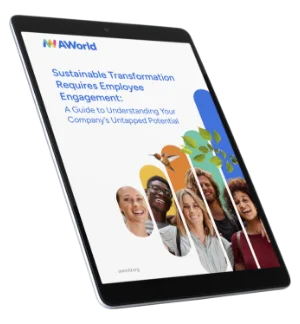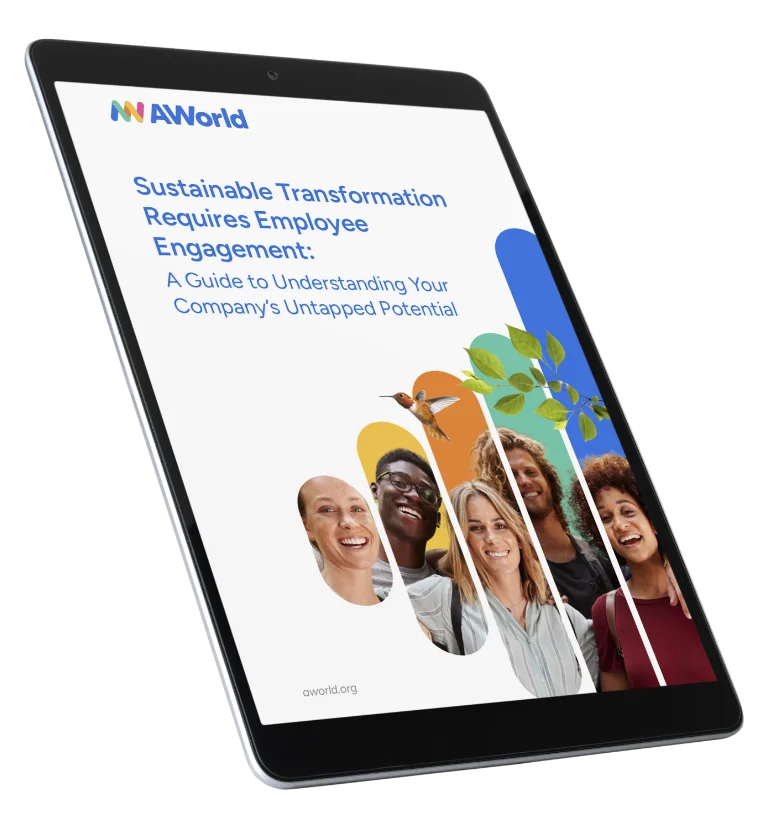In the ever-evolving landscape of corporate sustainability, two crucial frameworks have risen to the forefront: ESG and CSR.
As businesses worldwide increasingly recognize their responsibility in addressing environmental, social and governance concerns, understanding the nuances and disparities between these two approaches becomes imperative.
In this comprehensive article, we embark on a journey to dissect the meanings and delve into the key differences between ESG and CSR. Our mission is to empower executives, investors and conscientious individuals with the knowledge needed to navigate the complexities of responsible business practices.
Let’s embark on this enlightening voyage by first understanding the precise meanings and significance of ESG and CSR!
Table of Contents
What is ESG?
ESG stands for Environmental, Social and Governance. It is a framework used to assess and measure the sustainability and ethical impact of a company or organization. The ESG criteria are used by investors, stakeholders and analysts to evaluate how well a company is managing its impact on the environment, how it engages with its employees, customers, communities and other stakeholders and how it upholds principles of good governance.
Each component of ESG represents a specific aspect:
- Environmental: This refers to a company’s impact on the natural environment. It includes factors such as the company’s carbon footprint, energy efficiency, waste management practices, water usage and efforts to reduce pollution and emissions.
- Social: The social aspect considers how a company manages its relationships with employees, customers, suppliers, communities and other stakeholders. Factors within the social component include labour practices, diversity and inclusion, employee well-being, community engagement and human rights considerations.
- Governance: This evaluates the way a company is managed, including its internal controls, corporate leadership, executive compensation, shareholder rights, transparency and adherence to ethical business practices. Good governance ensures that the company is accountable, transparent and operates with integrity.
By incorporating ESG principles into their decision-making and operations, companies strive to improve their overall sustainability performance, build stronger relationships with stakeholders, attract responsible investors and contribute positively to society and the environment.
What is CSR?
CSR stands for Corporate Social Responsibility. It is a concept whereby companies and organizations take voluntary actions and initiatives to positively impact society and the environment beyond their legal obligations and economic objectives. CSR involves integrating ethical, social and environmental concerns into the company’s business operations and interactions with stakeholders.
The main components of CSR include:
- Social Responsibility: This aspect focuses on a company’s commitment to contributing to the well-being and improvement of society. It may involve initiatives to support education, healthcare, poverty alleviation and community development.
- Environmental Responsibility: Environmental CSR involves efforts to minimize the company’s negative impact on the environment and promote sustainable practices. Companies may work on reducing their carbon footprint, conserving resources and adopting eco-friendly technologies.
- Ethical Responsibility: Ethical CSR entails conducting business with integrity, honesty and transparency. Companies must adhere to ethical standards, respect human rights and avoid engaging in practices that harm society or exploit vulnerable populations.
- Economic Responsibility: While CSR primarily focuses on social and environmental aspects, economic responsibility is also crucial. It involves ensuring the company remains financially viable and contributes positively to economic growth, providing employment opportunities and supporting suppliers and local economies.
CSR has become a fundamental aspect of corporate culture, as companies increasingly recognize the importance of being responsible corporate citizens. Embracing CSR can enhance a company’s reputation, attract socially conscious customers and investors and contribute to building a sustainable and equitable future for all stakeholders involved.
ESG vs CRS: main differences
ESG and CSR are two distinct frameworks used by companies and investors to address sustainability and ethical considerations. While they share the common goal of promoting responsible business practices, they differ mainly in their scope, focus and approach. Here are the key differences between ESG and CSR:
Scope and focus
ESG is a broader and more comprehensive framework that encompasses environmental, social and governance factors. It looks at how a company’s operations impact the environment, its interactions with various stakeholders and the quality of its corporate governance.
CSR typically focuses on a company’s voluntary initiatives and activities aimed at benefiting society and the environment. It often involves philanthropy, community outreach and charitable giving.
Integration
ESG is integrated into a company’s core business strategy and operations. It is considered as a vital part of risk management, long-term sustainability and value creation for all stakeholders.
CSR activities are often seen as add-ons or supplementary to a company’s primary business objectives. They may be conducted on a discretionary basis and are not always fully integrated into the company’s strategic decision-making.
Reporting and measurement
ESG metrics are quantifiable and measurable, allowing companies to report their performance in specific areas such as carbon emissions, diversity ratios and governance practices. ESG reporting is more standardized and subject to greater scrutiny from investors and regulatory bodies.
CSR initiatives are typically more qualitative in nature and may not always have standardized metrics for reporting. While companies may publish CSR reports, the content and format can vary widely, making it challenging to compare across different organizations.
Stakeholder engagement
ESG emphasizes engagement with a broad range of stakeholders, including investors, employees, customers, suppliers and communities. Companies actively seek feedback and input from these stakeholders to address their concerns and improve sustainability performance.
CSR often involves one-way philanthropic activities, such as donations and charity work. While these initiatives can benefit communities, they may not always involve extensive engagement with stakeholders beyond the charitable recipients.
Approach
ESG factors are increasingly being incorporated into regulations and reporting requirements in various jurisdictions, making them a more standardized and regulated aspect of corporate governance.
CSR initiatives are generally voluntary, meaning companies choose to engage in such activities based on their values, social impact objectives and desire to be seen as responsible corporate citizens.
ESG and CSR policies implementation: success cases
There are several companies that have successfully implemented ESG and CSR policies, leading to positive financial and social impact results. Here are a few examples:
Unilever for CSR
Unilever, a consumer goods company, has a strong commitment to sustainability and social responsibility. Through its “Sustainable Living Plan,” the company aims to improve the health and well-being of more than a billion people, reduce its environmental footprint and enhance livelihoods for millions by 2030. Unilever’s sustainable brands, such as Dove and Ben & Jerry’s, have experienced strong growth, demonstrating that CSR initiatives can drive financial success while making a positive social impact.
Microsoft for ESG
Microsoft has been recognized for its comprehensive approach to ESG. The company has made significant strides in reducing its carbon footprint and has committed to becoming carbon negative by 2030. Microsoft also focuses on diversity and inclusion efforts, aiming to increase the representation of underrepresented groups within its workforce and leadership positions. By integrating ESG considerations into its business practices, Microsoft has not only strengthened its reputation but also attracted investors who prioritize sustainability and responsible governance.
Patagonia for CSR
Patagonia, an outdoor apparel company, is well-known for its strong commitment to environmental sustainability. The company actively supports environmental causes and uses organic and recycled materials in its products to reduce its ecological impact. Patagonia’s commitment to CSR has resonated with its customer base, contributing to its strong brand loyalty and financial success.
ESG & CSR: implementation challenges
The adoption of ESG and CSR practices by companies has not been without its share of hurdles. A prominent challenge is the peril of greenwashing, where companies tout their environmental and social efforts, yet substantive actions may be lacking. Some sceptics even view CSR initiatives as mere window dressing, lacking genuine dedication to societal and environmental concerns.
To counter these valid concerns, companies must make transparency and accountability their guiding principles. By providing unequivocal and verifiable data on their ESG and CSR endeavours, businesses can forge trust with stakeholders and steer clear of greenwashing accusations.
Moreover, genuine engagement with stakeholders – be it investors, employees, or communities – during decision-making processes is pivotal to establishing legitimacy. Ensuring initiatives align with actual needs and values becomes a tangible reality through this collaborative approach.
Furthermore, bolstering credibility and impact can be achieved by collaborating with industry peers and participating in multi-stakeholder initiatives. These collective efforts enhance the overall effectiveness of ESG and CSR endeavours, thereby fostering a more sustainable and responsible business landscape.
ESG and CSR join forces in the fight against climate change
ESG and CSR practices play a pivotal role in advancing environmental sustainability and combating climate change.
Under the ESG framework, companies actively assess their environmental impact, adopting measures to reduce greenhouse gas emissions, conserve resources and promote eco-friendly practices. By incorporating renewable energy sources, optimising supply chains and implementing energy-efficient technologies, businesses can significantly decrease their carbon footprint.
Similarly, CSR initiatives directed towards environmental conservation, such as reforestation programs, waste reduction projects and support for renewable energy projects, contribute to preserving biodiversity and mitigating climate change effects.
Through these combined efforts, ESG and CSR practices not only ensure responsible business conduct but also catalyse a collective response to protect the planet and create a more sustainable future for generations to come.
Regulatory framework on ESG and CSR
The landscape of ESG and CSR practices is a patchwork of diverse laws and regulations, varying across countries and regions. Many jurisdictions now require companies to report on their ESG efforts, making sustainability disclosures mandatory. This compels businesses to be transparent about their sustainability initiatives and their impact on society and the environment. Some countries also incentivize socially responsible activities by offering tax benefits to companies that actively engage in such practices.
Moreover, on a broader scale, there are influential governmental and international initiatives like the United Nations Global Compact and the Sustainable Development Goals (SDGs). These frameworks and guidelines encourage businesses to align their operations with sustainable and ethical principles. They aim to foster collaboration between governments, businesses and civil society, uniting their efforts to address global challenges and promote responsible corporate behaviour worldwide.
AWorld: the platform to improve your ESG & CSR performance
AWorld is a sustainable and innovative platform that can play a crucial role in elevating companies’ ESG and CSR performance. Driven by the core belief that small daily actions can make a significant difference, AWorld offers versatile tools to promote sustainability engagement across multiple spheres. With a blend of sustainability education, gamification elements and practical guidance on adopting eco-friendly practices, the app empowers companies to strengthen their commitment to sustainability.
AWorld allows companies to launch collective challenges with personalised objectives, enabling them to focus their efforts on specific areas of improvement. These challenges can tackle crucial sustainability aspects like water conservation, CO2 emission reduction and electricity consumption curbing, motivating participants to take daily actions that benefit the planet. At the end of each challenge, the platform efficiently analyses the results and translates them into sustainability reports, which provide specific indicators and metrics, such as carbon emissions, employee engagement or alignment with the United Nations’ Sustainable Development Goals (SDGs).
Through this holistic approach, AWorld plays a pivotal role in propelling companies towards enhanced sustainability performance while facilitating transparent reporting that showcases their dedication to responsible and impactful business practices.





